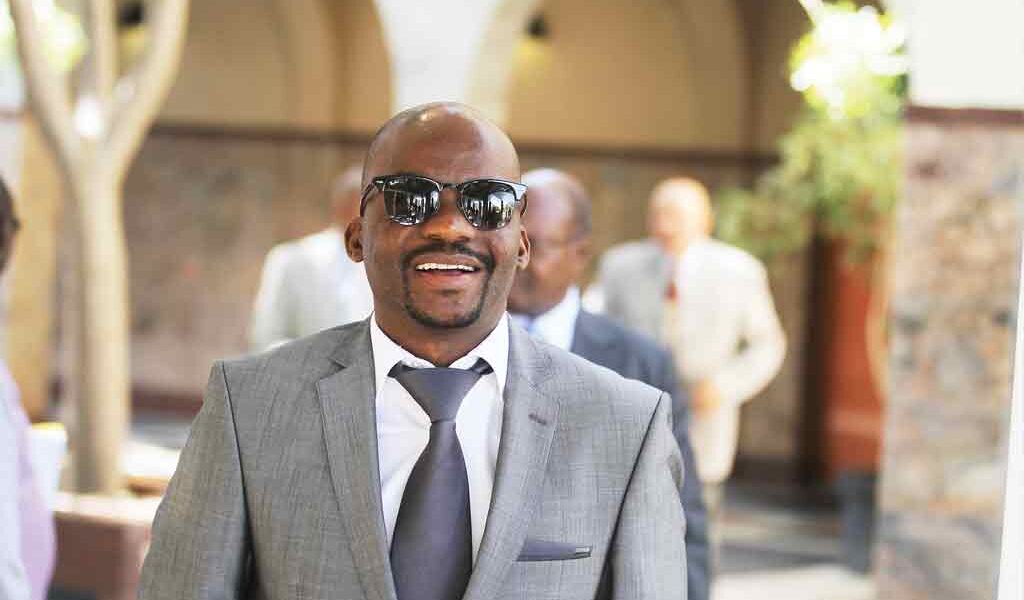Gazette Reporter
Member of Parliament for Selebi-Phikwe West, Dithapelo Keorapetse has tabled a bill to repeal the controversial Media Practitioners Act (Cap. 61:09) which was passed by Parliament in December 2008.
Government was unable to implement and enforce the Act after the Law Society of Botswana (LSB) took a proactive stance to defend media freedom and freedom of expression by refusing to nominate an attorney as required by the legislation, rendering the entire Act moribund.
Media Practitioners (Repeal) Bill, 2018 was published on the 14 December 2018 in the Extraordinary Government Gazette.
The Media Practitioners Act although ten years old has never been implemented when key stakeholders refused to participate despite their participation being mandatory in the Act, “The majorities of stakeholders subscribe to the international standard of self-regulation, media freedom and are of the view that it is a draconian and regressive law. It is intended therefore that by introducing this Bill, the status quo, continues until such time when a proper instrument is brought for Parliament’s consideration,” argues Keorapetse.
The Selebi Phikwe MP says both the BCP and the UDC are social democratic parties which promote media freedoms and for this reason seek to ask Parliament during its budget session to exercise its law-making power to repeal this draconian law.
“As the UDC we are of the opinion that since independence, freedom of information (the free access of the public to information contained in government records) and freedom of speech (liberty to express opinions and ideas without hindrance and without fear of punishment) have been restricted and controlled by Botswana’s strong authoritarian state in a manner that gravely undermines and negates the principles of transparency and accountability,” Keorapetse states in his challenge to the defunct legislation.
“We contend that rulers should be accountable to the ruled; they should be obliged to justify their actions to the electorate. Political leaders should answer to the public on the disposal of their powers and duties, act upon criticisms or demands made of them, and accept responsibility for failure, blunders, incompetence or deceit,” he said further noting that this is only achievable if there is a free media which is able to work without fear.
The Media Practitioners Act, 2008, criminalizes journalism, restricts media work and intimidates journalists. It promotes self censorship by publishers, journalists and editors, argue Human and Media Rights activists. Despite the law establishing a Press Council which would purportedly act as a self-regulating body that was intended to monitor the activities of the press and ensure the maintenance of high professional standards, it also provided for the registration and accreditation of media practitioners and prohibited any non-registered media practitioner from publishing in local media. The law also provided for stiffer penalties including hefty fines with jail terms against media practitioners. Critically the media council was to have government representatives and government appointees overseeing the conduct of journalists.
Keorapetse highlighted that “such kind of laws were common in one-party states and outright dictatorships; they were cited as examples that there was no democracy in such polities.”
The law, he says was enacted under the pretext of providing for self regulation but falls short of the key principles of self-regulation and therefore undermines media freedoms.
“Parliament and the government must accept the reality that it’s been impossible to enforce and implement the Act for ten years. Why have laws that you cannot use for a decade? Such laws even the Court of Appeal has advised that they should be repealed,” he argued.
Keorapetse has called for an urgent reform of restrictive laws that impede media freedom, freedom of information and freedom of expression.
“We will ask the government to review Laws such as the National Security Act, Corruption and Economic Crime Act, Penal Code, Cinematograph Act, Immigration Act and Public Service statutes which contain media unfriendly provisions which must be looked into,” the MP announced.
According to Keorapetse, reform of the state media is also essential and is one way of ensuring greater transparency and accountability by government. “It (reform of state media) should be done through granting it autonomy by making it a public enterprise/parastatal with an independent board. This will prevent the use of the state media for promoting the governing party,” he said, further concluding that they hope that Parliament, as a whole, including all MPs across the aisle, will legislate for the good order and governance of the Republic by repealing the unnecessary and draconian Act.

